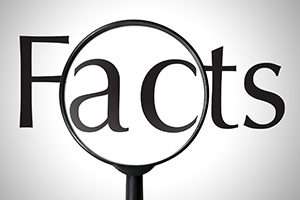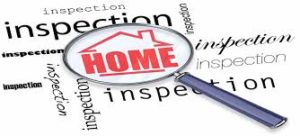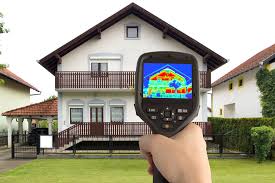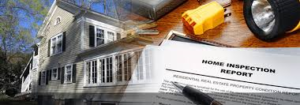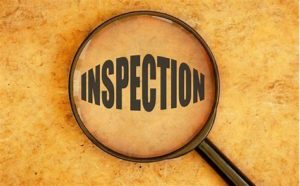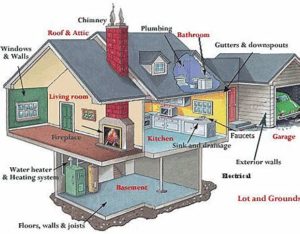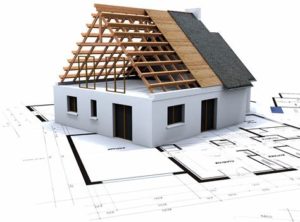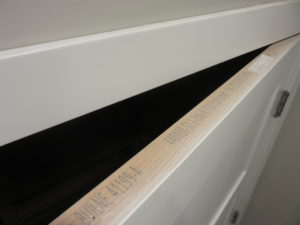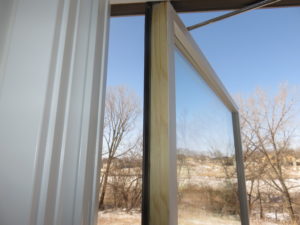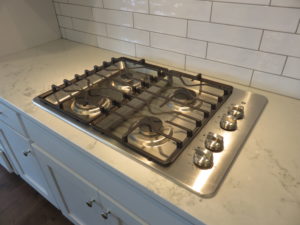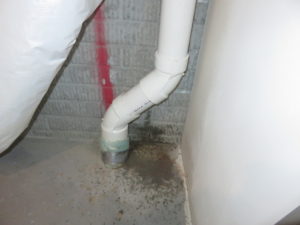
When buying a home, the question you may be asking is “Why do I need a home inspection?” The answer is quite simple, to have the best possible evaluation of the home and the issues you may be taking on. Keep in mind that as the future home owner it is also your responsibility to understand that the home you are looking at has been dressed up by the seller to accentuate its best features and minimize its potential flaws. When you look at the home look beyond the furnishing that have been set in the home, beyond the aromas that are intentionally drifting through the it and beyond the aesthetic appeal. Instead, look under the sink, flush toilets, check appliances, look under rugs and area carpets – in other words unwrap the package being presented and look what is inside. Look critically at what you are wanting to buy. Make a list of concerns you have with the home as well as other items you want a home inspector to assess. Remember, you as the future home owner can address these issues before the sale if you have placed contingencies on your purchase contract. After you purchase the home those issues become yours.
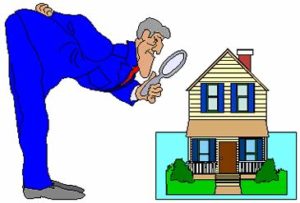
What a Home Inspection Entails
Home buyers should be aware of what the home inspection process entails. Generally, a home inspection will include a report on the home’s heating and cooling systems, electrical system, plumbing, walls, ceilings, flooring, foundation, roofing, drainage and basement. Typically, the home inspection will not include termites, chemicals and gasses (methane and/or asbestos), lead or rodents. What the home inspector may tell you is that there’s a good chance there may be a termite problem because of the area the home is located. It is then up to you to call a professional in that field to give a written analysis. Generally, home inspectors are not licensed to inspect for specific issues like pests, gasses, etc. If you are in a high-risk area, a specialized inspection to assess the house’s susceptibility to those risks would be advised to do as well.
Yes, the cost of home inspections can present a major factor for some home buyers that are already facing down payments, closing costs and loan fees. While you, as the future home buyer, may hope to save money on property inspections please keep in mind that the cost of these inspections will save you money in the long run. So what inspections are essential? Keep in mind that you should look for inspectors that will inspect the property ONLY. Do not look for inspectors who also mitigate or repair the damage as well. This creates an issue of credibility of the inspection report.

In urban and suburban areas:
1. Wood-destroying pest inspection
a. This includes a licensed pest inspector who can exam the property for pests, water damage, fungus and mold.
2. General home inspection
a. This includes the condition of the home’s heating system, central air conditioning system (temperature permitting), interior plumbing and electrical systems, the roof, attic, insulation which is visible, walls, ceilings, floors, windows, doors, foundation, basement and structural components. Keep in mind, no house is perfect. Also keep in mind that no home inspector has a crystal ball to investigate the future of your home. He/she will assess and review the house that day and give you an assessment on the condition of the home on the day of the inspection.
Optional Inspections:
1. Chimney inspection
a. These inspections are relatively inexpensive and sometimes include a cleaning of the chimney.
2. Roof inspections
a. If the home inspector raises an alarm about the condition off the roof, regardless of when the roof was applied, it is smart to get a roof inspection. Roofing companies can analyze problems and provide free estimates. It is not the clients best interest, however, to suggest a roofing company analysis over an inspection by a qualified roof inspector. Remember, it is the roofing companies interest to sell you a roof.

Inspections for country properties:
1. Septic system inspection
a. Septic system inspectors check the operation, calculate how recently the system has been pumped, determine whether the system requires pumping prior to sale and identify the boundaries of the leach-field. Keep in mind that leach fields cannot be built over, and they don’t make good vegetable gardens either!
2. Well inspection
a. Inspectors provide information on the age, condition and depth of the well and the quality of the water being pumped.
Optional inspections:
1. Boundary survey
a. A preliminary title report that includes a plat map, showing the boundaries and size of the lot. If the buyer wants boundaries marked and/or verified this should be considered. These inspections do take time and may significantly delay the close of escrow.
2. Soil and geological studies
a. These studies are crucial on hillsides and some flat areas where you may want to invest in a potential vineyard. Typically, this test is used to identify the stability of the home on the land it is positioned.

Special concerns:
1. Electrical inspection
a. This inspection will provide information about electrical boxes which may be past their prime or recalled and need to be updated. If the home inspector raises an alarm about the box or wiring, further inspection by a licensed electrician can help you address questions about how to best address specific conditions of the home’s electrical system.
2. Foundation inspection
a. The home inspector will be able to tell you if the home’s foundation is sound or if there is scaling or cracking that warrants further inspection. If that is the case a structural or foundation engineer should assess the foundation issues that may exist.
3. Homeowners association (HOA) documents
a. If your home/condo/townhome has a HOA you will want to secure the HOA contract/agreement, which the seller is required to provide for buyers’ review. This document will include the governing documents, financials, covenants, conditions and restrictions (CC&Rs) and more.
4. Historic overlay requirements
a. If your chosen home is in a local, state or nationally-recognized historic district, an additional layer of government oversight may be required for any exterior and sometimes interior changes.
5. HVAC system inspection
a. If the home inspector recommends further evaluation of the heating/air conditioning system a specialist should be brought in to test the system. These are also the specialists to contact if you want duct cleaning as well.
6. Landscape inspection
a. A landscape inspection would cover retaining walls, paths, stairways, terracing, patios and decks, outdoor kitchens, water features, fireplaces and fire pits, irrigation systems, fences, lighting, play structures/areas, lawns and trees. An arborist should be included in the inspection if the property is heavily treed or hosts environmentally protected species.
7. Lot size/boundaries
a. Your preliminary title report will provide the buyer with a plat map with identifiable boundaries. Fences are not always a reliable boundary marker. If you are concerned you may want to hire a surveyor to mark the exact property lines.
8. Permit history
a. You can request this information from the seller or from the city/county planning department.
9. Pool and spa
a. If your property has a pool or spa it should be inspected. Request a professional who specializes in installation and maintenance of pools and spas. These individuals will evaluate the estimated life of the pool and decking structures as well as the operating components of the pool/spa/heater/skimmer/etc.
10. Lead/asbestos/other health hazards testing
a. Homes built before bans on lead/asbestos/etc. may still contain some of the banned materials. Buyers have the right to have the home tested for these. Families with young children may be particularly concerned about the presence of lead.
b. Radon, mold and methane gas also requires specialized inspections. Radon is a hazard that exists in many parts of Nebraska as well as throughout the United States.
11. Sewer lateral inspection
a. Some cities and counties are requiring homeowners to upgrade aging sewer pipes (laterals) that runs from the main sewer line to each home. If this is the case with the home you are purchasing you will want to have that lateral looked at before you release inspection contingencies.
12. Square footage verification
a. County tax records generally state the square footage of both the home and the lot where the home stands. You may want those numbers verified. A property appraiser can measure and report the square footage.

At Corspect Advanced Home Inspections we combine knowledge, experience and science to provide you with the highest level of inspection service. Corspect Advanced Home Inspections uses the latest technology to assess every detail of the homes systems. At Corspect Advanced Home Inspections we also have the unique ability, through Drone equipped HD Cameras, to inspect and photograph roof components. At Corspect Advanced Home Inspections it is our mission to make the home buying experience rewarding, informative and enjoyable for all. Contact Bob at Corspect Advanced Home Inspections to set up your home inspection.

